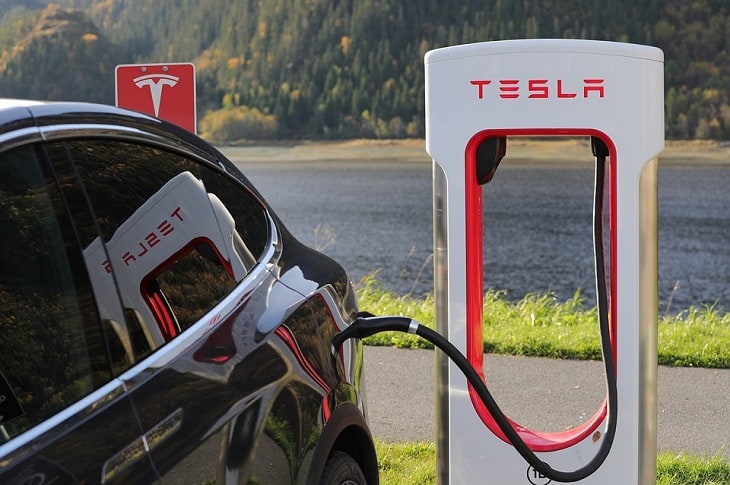It’s impossible to look at the motoring media these days without hearing about electric cars, but the coverage they get doesn’t seem to be very representative of their popularity with car buyers as they’re still not quite commonplace on UK roads at the moment. That’s going to change, and probably very soon, but how close are we to electric cars becoming mainstream in the UK?
There are a number of reasons the roads aren’t yet awash with EVs, we’ll get into those in a moment. Even so, the uptake by consumers is growing at quite a pace and the more people see and experience the joys of electric driving, the more likely they’ll be to go electric the next time they change cars.
How many EVs are we buying at the moment?
By the end of 2018, figures from the Society of Motor Manufacturers and Traders (SMMT) show that almost 60,000 plug-in cars were registered in the UK. Unsurprisingly, that’s a record number for the UK market and it beats the previous record set in 2017 by around 13,000 units. However, these figures are not for cars that are electric-only as they include plug-in hybrids that still use a combustion engine for a lot of their propulsion. Only around a quarter of the plug-in cars sold were electric-only models, but sales of EVs are definitely on an upward curve.
Some 15,474 all-electric cars were registered in 2018, which is an increase of 1,877 over the previous year. Even so, it’s still only a very tiny percentage of overall sales, which in 2018 numbered 2,367,147.
What’s holding us back from going electric?
Contrary to what some people like to think, there’s no lack of desire from UK consumers for switching to electric cars. In a nationwide survey of more than 2,000 UK car owners conducted by Motorway last year, 26 percent of respondents said they expected to be buying an electric or hybrid car within the next six years. So, if buyers want them and manufacturers are ploughing unimaginable amounts of money into producing electric vehicles, why do they still only account for around 2.5 percent of UK car sales?
There are four main issues holding people back from buying electric vehicles:
- Range anxiety – The most affordable EVs only have a driving range on a full charge of around 150 miles, although the new Nissan Leaf can now be bought with a larger 62 kWh battery, increasing the car’s range to a far more user-friendly 239 miles. A lot of people worry that they won’t be able to get to their destination without the battery running out, even though the vast majority of us don’t drive anywhere near that far in a normal day.
- Lack of charging infrastructure – It’s true that we have a very, very long way to go before there are anywhere near enough charging facilities for a large proportion of drivers to run electric cars, but the numbers are growing daily. It does take a little extra planning at the moment if you want to do a journey that’s longer than the range of your EV, but it’s getting easier all the time as the infrastructure improves.
- Length of time it takes to recharge – It’s true that if you plan to charge your EV from a regular mains supply at your home it’s going to take nine hours or more to fully recharge a depleted battery. Fast charging technology is coming on in leaps and bounds at the moment though, and the Long Range Tesla Model 3 can fully recharge from depleted in around 20 minutes from a 200 kW charger. And 300 and 350 kW chargers are on the way in 2020, so a time when we can charge an EV as quick as filling up a petrol tank probably isn’t too far away.
- Cost – We have a bit of a chicken and egg situation when it comes to the amount of money it currently costs to buy an EV. Right now, even the most affordable EVs are considerably more expensive than a petrol or diesel equivalent, and that’s because there isn’t enough consumer demand for manufacturers to produce them in big enough numbers to bring the price down. Of course, until they become more affordable, a lot of buyers will be tempted to stick to cheaper petrol and diesel cars and the growth of demand for EVs will remain relatively slow.
More choice than you might imagine
Some people think there isn’t a great deal of choice yet if you want an all-electric car in the UK, but that’s simply not true anymore. There are quite a few on sale already and covering a wide spectrum of prices and performance. Next year looks like being a year when the EV market really explodes with a ton of exciting new models arriving on our shores.
Among the best of the more affordable EVs already available are the Kia E-Niro, the VW e-Golf, Renault Zoe and the world’s biggest-selling EV, the Nissan Leaf. If you want something more luxurious and powerful you can always go for a Tesla Model S, Mercedes-Benz EQC or the staggeringly good Jaguar I-Pace. Here at Motorway, we’ve reviewed our top 12 electric cars here.
The Jaguar I-Pace is so good it’s not only the European Car of the Year, it’s also the World Car of the Year for 2019 and has so far collected more than 62 international awards and counting. If the I-Pace is a taste of what’s to come, the day when we go to buy a new car and electric is the only consideration isn’t as far away as you might think.

